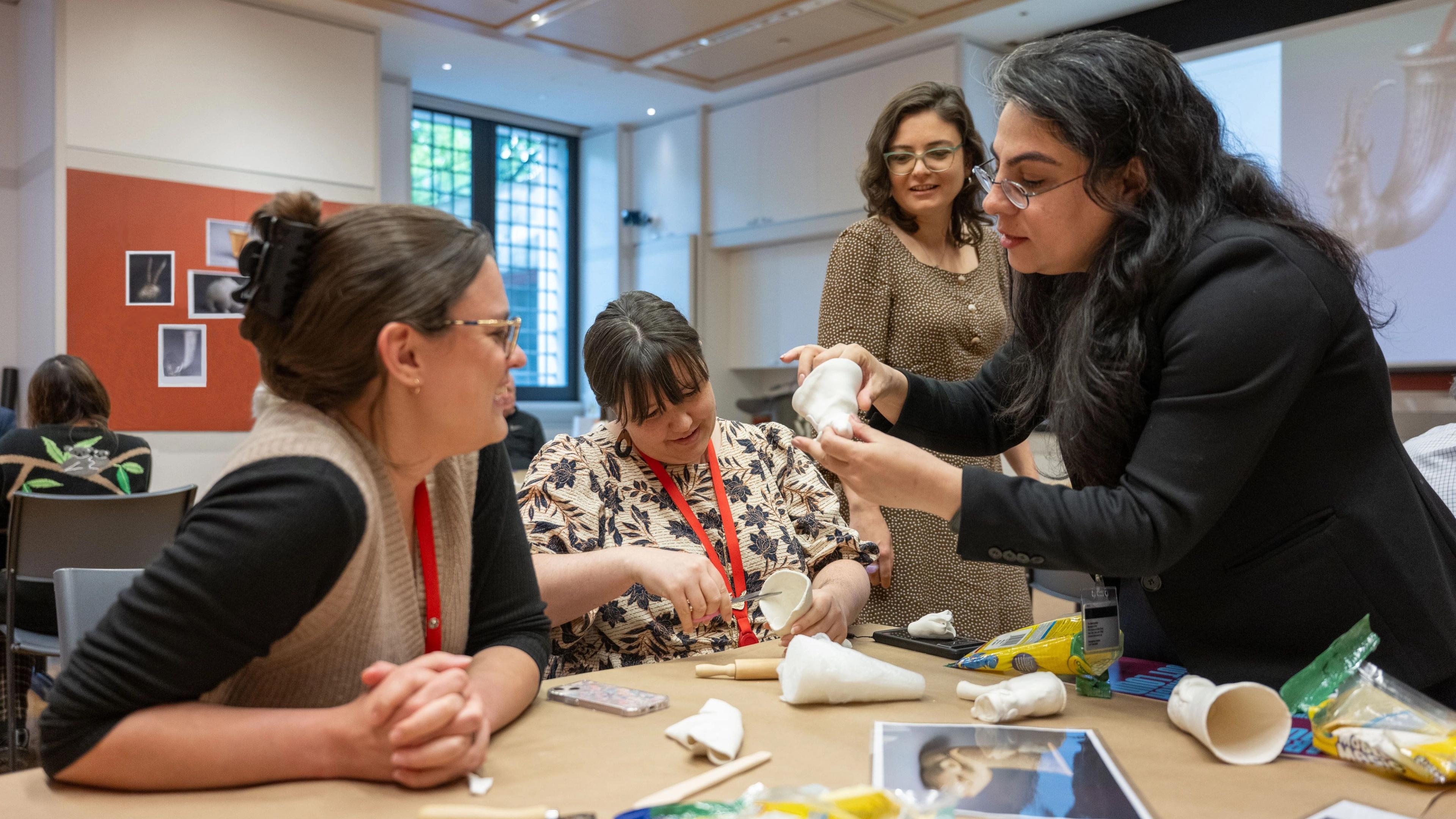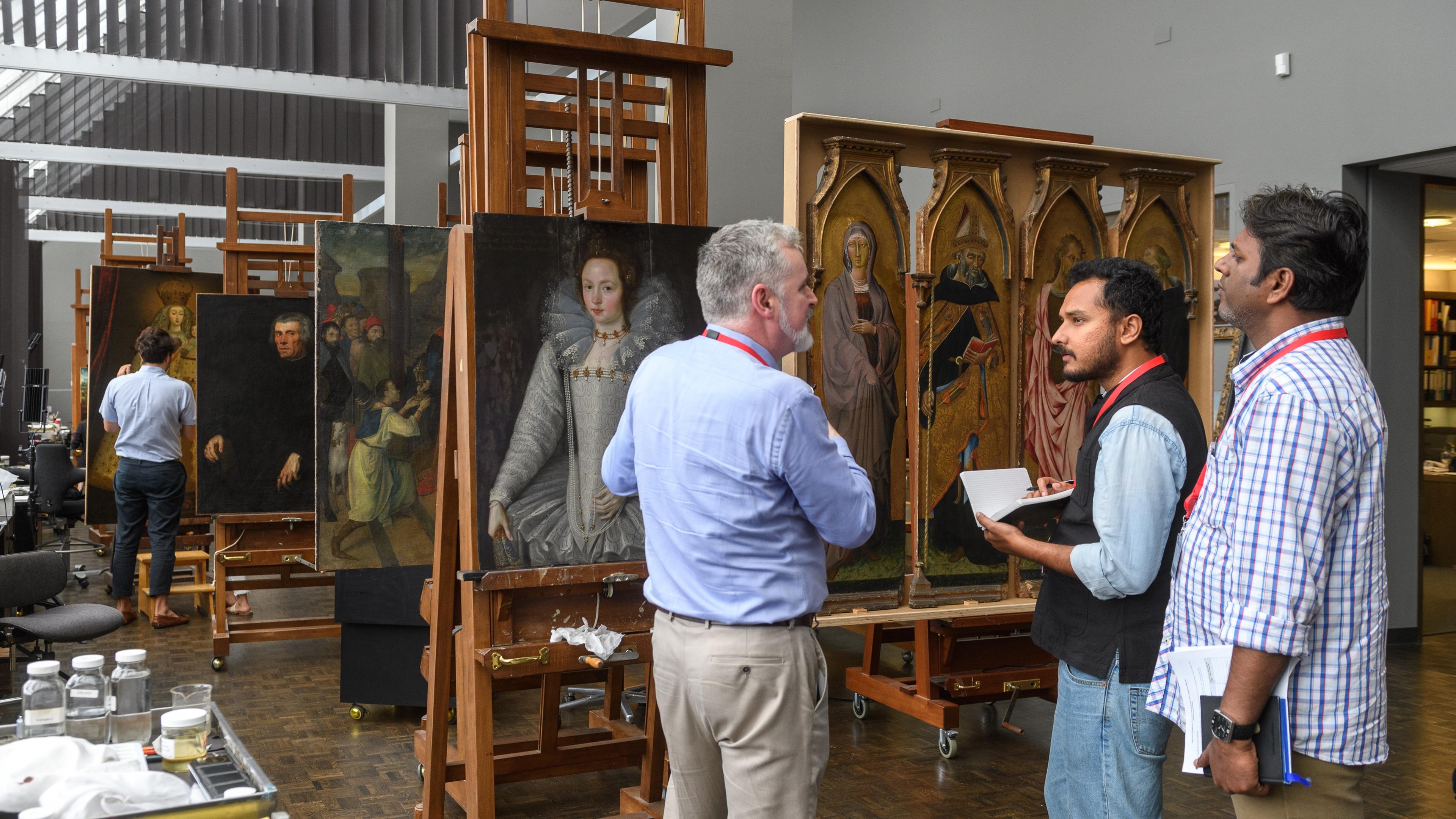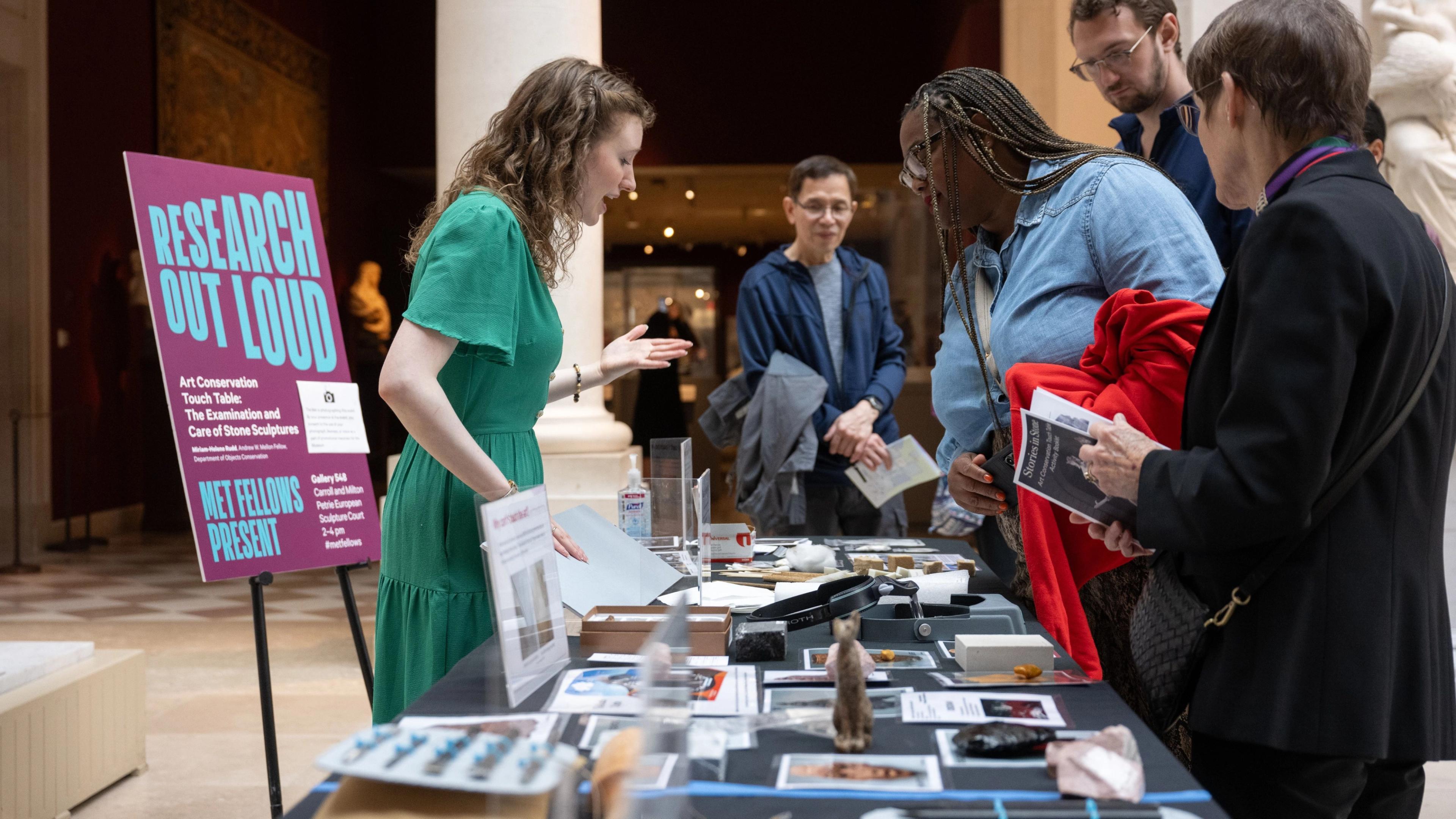Eugene V. Thaw Fellowship for Collections Cataloguing
About the Fellowship
Unique among Met fellowships, the purpose of this position in the Department of European Paintings is to train emerging museum professionals in the practice of cataloguing works of art, including researching and compiling provenance information, exhibition histories, and bibliographic references, as well as documenting critical opinions found in literature. Fellows also receive training in The Museum System (TMS), a collections management database widely used by museums.
The fellow participates in a range of activities, typically focusing on a specific portion of the collection, and works closely with curators, conservators, and cataloguers under the direction of the Senior Collections Cataloguer. With European Paintings colleagues, the fellow develops areas of personal interest within the fields of collections cataloguing and art history. To further develop their expertise, the fellow may also have the opportunity to travel to research objects in the European Paintings collection.
- Applicants for the Eugene V. Thaw Fellowship are not expected to have a background in cataloguing, though it is beneficial.
- Eligible candidates must hold an MA at the time of application, and/or be working toward a PhD. Postdoctoral and senior scholars are not eligible for this fellowship.
- Basic language skills pertaining to the area in which the fellow plans to work are essential.
- All fellows must be in residence at The Met for the entirety of their 12-month fellowship period.
- All fellows are expected to have valid US work authorization for the entire duration of the fellowship. If you are not a US citizen or permanent resident, please review the additional details in the Fellowship Application FAQs and ensure you have confirmed your eligibility prior to submitting your application.
The fellow receives:
- An annual salary of $47,000
- Benefits currently offered to full-time, nonexempt employees of the Museum, such as health insurance (optional)
- A stipend of up to $2,000, pending approval by the European Paintings department head, for travel or projects directly related to collections research
The Eugene V. Thaw Fellow for Collections Cataloguing is a temporary, full-time, nonexempt employee of The Met.
Application deadline: Friday, October 17, 2025, 5 pm ET
Notification deadline: All applicants will be notified by the last Friday in February following the application deadline.
Fellowship Period: September 1, 2026 through August 31, 2027
All applications, including letters of recommendation, must be submitted online and in English. The Met will not accept applications or related materials via email, postal mail, or in person.
Applicants for the Eugene V. Thaw Fellowship for Collections Cataloguing must submit the following materials (as .doc or .pdf files):
- A statement of interest, not to exceed 1,000 words, specifying your areas of research and their relationship to the European Paintings collection and activities. Include relevant experiences related to this curatorial area.
- A copy of a published paper or recent writing sample, not to exceed 5,000 words.
- A curriculum vitae of education, professional experience, honors, awards, and publications.
- Three letters of recommendation. Applicants must submit at least one academic and one professional letter of recommendation. All letters must be submitted in English and uploaded directly by the recommenders. Recommenders may not be current Met staff, contractors, or volunteers.
- Official transcripts (undergraduate and graduate).
If you have transcripts from more than one institution for either category (undergraduate or graduate), please upload them as one combined file.
What to Expect After Applying
Once submitted, staff in relevant department(s) first review your application to assess the quality and feasibility of your application according to the criteria set forth on the evaluation rubric. If your proposal meets the necessary criteria, the department(s) recommend it for review by The Met’s Grants Committee, which consists of members of The Met’s professional staff appointed by the Museum’s Director and Chief Executive Officer. The committee reviews all aspects of each application submitted, using the evaluation rubric (see above). Following this assessment, the Grants Committee submits final award recommendations to the Director and CEO for review and approval. You are notified regarding the result of your application by the last Friday in February.
Please note that due to the lengthy and multiperspective review process, we are unable to provide individual feedback on applications that are not selected.
Selection Criteria
Applications are evaluated based on the criteria set forth in The Met’s evaluation rubric. Reviewers consider all your application materials: your statement of interest, digital interpretation statement, writing sample, CV, and letters of recommendation. They use the rubric to score your application, but this serves only as a guide. There is no cut-off score for progressing in the review process or being awarded a fellowship. View the evaluation rubric. (PDF)
Life as a Met Fellow

Research Support, Community, and Professional Development
Fellows receive financial support, time for research, exposure to museum work, and access to The Met collection and libraries. Weekly programs and workshops bring fellows together with Met staff to share ideas, develop professional skills, and discuss current issues in museum practice.

Departmental Placement
Fellows are embedded in a curatorial, conservation, audience engagement, or scientific research department with a dedicated Met staff supervisor. Browse curatorial and conservation departments. The Education, Digital, Live Arts, and Archives departments also host Interdisciplinary Fellows.

Research Out Loud: Met Fellows Present
Research Out Loud: Met Fellows Present connects the fellows with the public through a series of gallery programs and research presentations that offer cross-cultural and transhistorical connections throughout The Met collection.